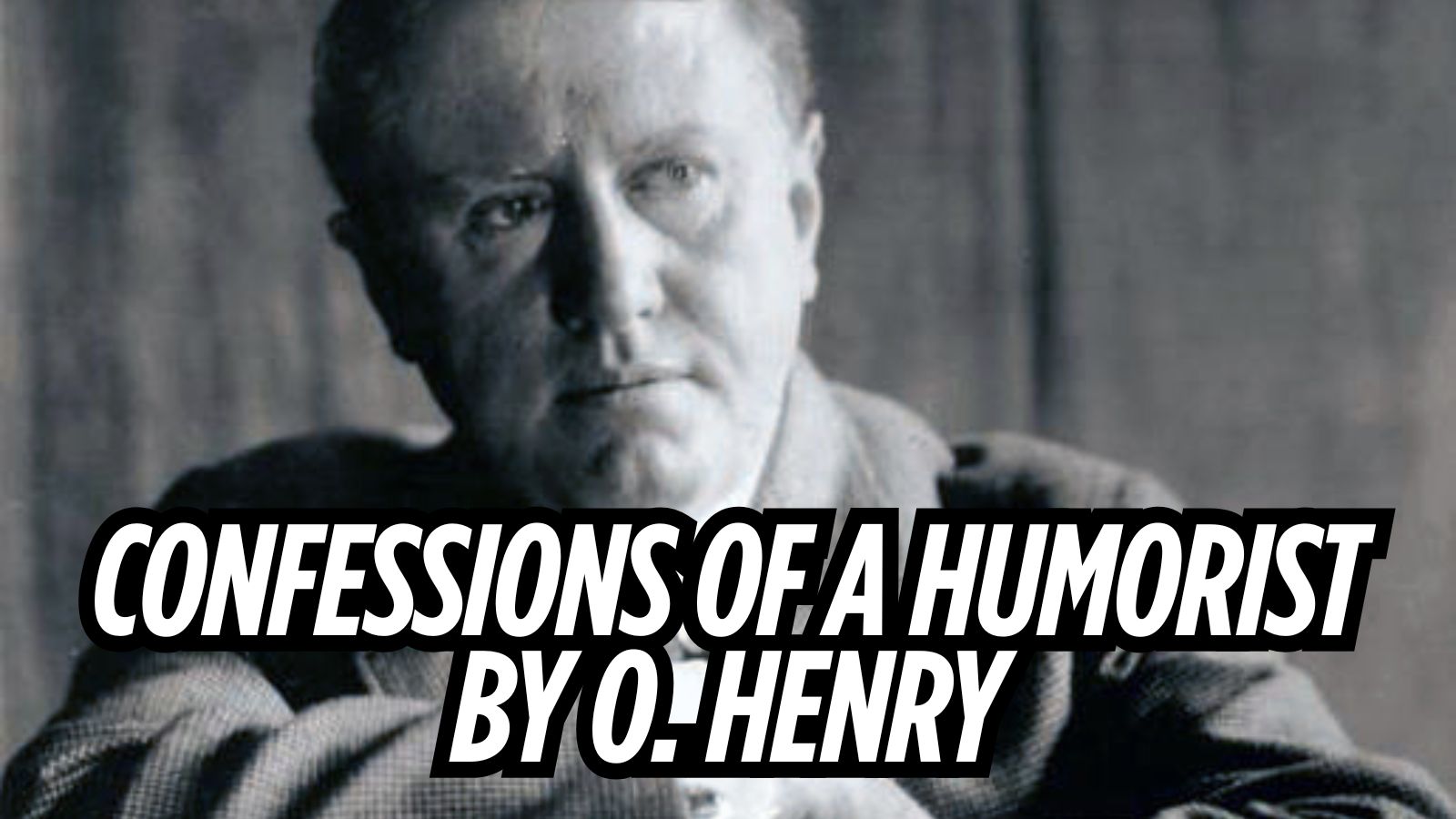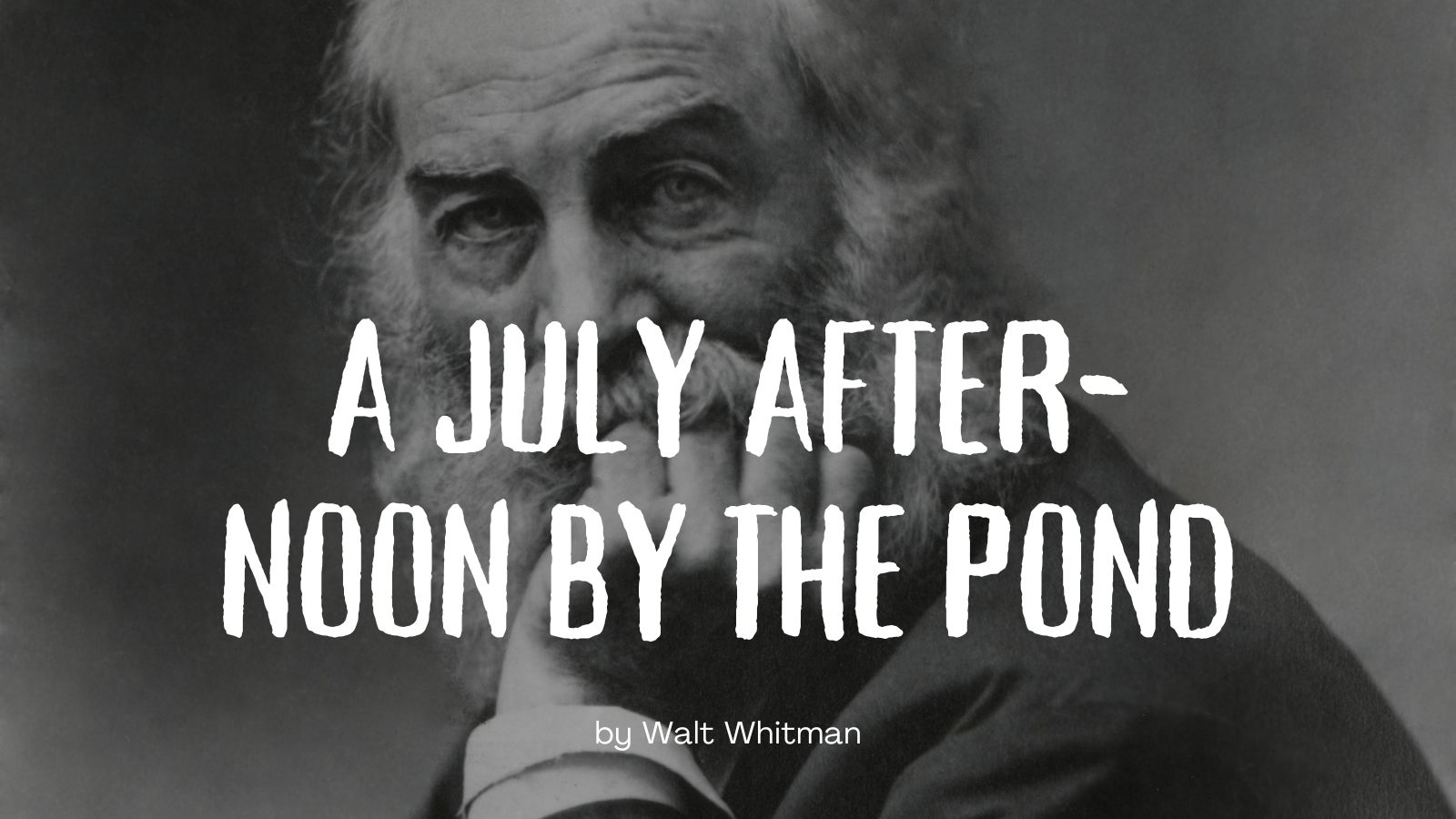The centre of our studies, the goal of our thoughts, the point to which all paths lead and the point from which all paths start again, is to be found in Rome and her abiding power.—Freeman. Few students of mankind, if truly impartial, can fail to select as the greatest of human institutions that mighty…
AN AUTUMN EFFECT by Robert Louis Stevenson (1875)
AN AUTUMN EFFECT by Robert Louis Stevenson (1875) A country rapidly passed through under favourable auspices may leave upon us a unity of impression that would only be disturbed and dissipated if we stayed longer. Clear vision goes with the quick foot. Things fall for us into a sort of natural perspective when we see…
OLD POETS by Walt Whitman
Poetry (I am clear) is eligible of something far more ripen’d and ample, our lands and pending days, than it has yet produced from any utterance old or new. Modern or new poetry, too, (viewing or challenging it with severe criticism,) is largely a-void—while the very cognizance, or even suspicion of that void, and the…
Why The Blind Man in Ancient Times was Made a Poet by William B. Yeats
Why The Blind Man in Ancient Times was Made a Poet by William B. Yeats A description in the Iliad or the Odyssey, unlike one in the Æneid or in most modern writers, is the swift and natural observation of a man as he is shaped by life. It is a refinement of the primary…
About Books that Might Be Written by H. G. Wells
OF A BOOK UNWRITTEN by H. G. Wells Accomplished literature is all very well in its way, no doubt, but much more fascinating to the contemplative man are the books that have not been written. These latter are no trouble to hold; there are no pages to turn over. One can read them in bed…
How Shakspere Came to Write the ‘Tempest’ by Rudyard Kipling
To the Editor of the Spectator. SIR:—Your article on ‘Landscape and Literature’ in the Spectator of June 18th has the following, among other suggestive passages:—“But whence came the vision of the enchanted island in the ‘Tempest’? It had no existence in Shakspere’s world, but was woven out of such stuff as dreams are made of.”…
RUPERT BROOKE: by Henry James
RUPERT BROOKE: by Henry James Nothing more generally or more recurrently solicits us, in the light of literature, I think, than the interest of our learning how the poet, the true poet, and above all the particular one with whom we may for the moment be concerned, has come into his estate, asserted and preserved…
Solitude by Henry David Thoreau
Solitude By Henry David Thoreau This is a delicious evening, when the whole body is one sense, and imbibes delight through every pore. I go and come with a strange liberty in Nature, a part of herself. As I walk along the stony shore of the pond in my shirt-sleeves, though it is cool as…
ON THE ART OF POETRY By Aristotle II.
ON THE ART OF POETRY By Aristotle II. The objects the imitator represents are actions, with agents who are necessarily either good men or bad—the diversities of human character being nearly always derivative from this primary distinction, since the line between virtue and vice is one dividing the whole of mankind. It follows, therefore, that…
Origin of Printing by Frederick Saunders (1839)
Origin and Progress of Printing by Frederick Saunders (1839) (I thought it would be interesting to take a look at the ideals of an early publisher, a pioneer in modern printing of his day. Much like many of us are pioneers of modern web and digital printing. The text was written in 1839. I’m sure…
The Story of a Speech by Mark Twain
An address delivered in 1877, and a review of it twenty-nine years later. The original speech was delivered at a dinner given by the publishers of The Atlantic Monthly in honor of the seventieth anniversary o f the birth of John Greenleaf Whittier, at the Hotel Brunswick, Boston, December 17, 1877. This is an…
Bio of Benjamin Franklin by Nathaniel Hawthorne
In the year 1716, or about that period, a boy used to be seen in the streets of Boston, who was known among his schoolfellows and playmates by the name of Ben Franklin. Ben was born in 1706; so that he was now about ten years old. His father, who had come over from England,…
Confessions of a Humorist by O. Henry
O. Henry’s “Confessions of a Humorist” reveals how monetizing creativity leads to burnout—a cautionary tale surprisingly relevant for today’s content creators and digital economy.
Let’s Just Eat the Babies by Jonathan Swift
A MODEST PROPOSAL Dr. Jonathan Swift For preventing the children of poor people in Ireland, from being a burden on their parents or country, and for making them beneficial to the publick. 1729 It is a melancholy object to those, who walk through this great town, or travel in the country, when they see the…
A JULY AFTER-NOON BY THE POND by Walt Whitman
Experience Whitman’s genius! A summer pond transforms into a profound meditation on nature and existence.

